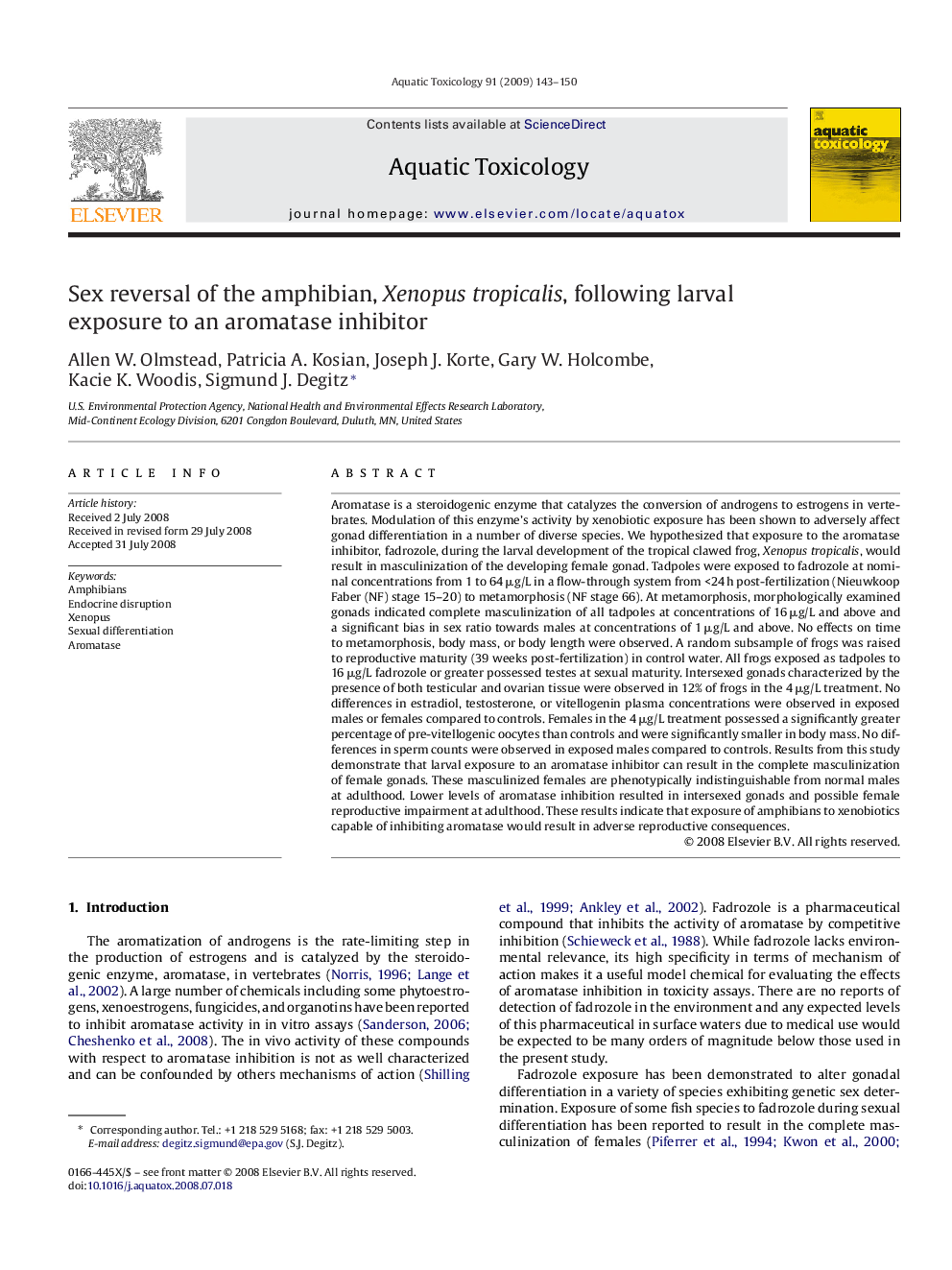| کد مقاله | کد نشریه | سال انتشار | مقاله انگلیسی | نسخه تمام متن |
|---|---|---|---|---|
| 4530773 | 1324728 | 2009 | 8 صفحه PDF | دانلود رایگان |

Aromatase is a steroidogenic enzyme that catalyzes the conversion of androgens to estrogens in vertebrates. Modulation of this enzyme's activity by xenobiotic exposure has been shown to adversely affect gonad differentiation in a number of diverse species. We hypothesized that exposure to the aromatase inhibitor, fadrozole, during the larval development of the tropical clawed frog, Xenopus tropicalis, would result in masculinization of the developing female gonad. Tadpoles were exposed to fadrozole at nominal concentrations from 1 to 64 μg/L in a flow-through system from <24 h post-fertilization (Nieuwkoop Faber (NF) stage 15–20) to metamorphosis (NF stage 66). At metamorphosis, morphologically examined gonads indicated complete masculinization of all tadpoles at concentrations of 16 μg/L and above and a significant bias in sex ratio towards males at concentrations of 1 μg/L and above. No effects on time to metamorphosis, body mass, or body length were observed. A random subsample of frogs was raised to reproductive maturity (39 weeks post-fertilization) in control water. All frogs exposed as tadpoles to 16 μg/L fadrozole or greater possessed testes at sexual maturity. Intersexed gonads characterized by the presence of both testicular and ovarian tissue were observed in 12% of frogs in the 4 μg/L treatment. No differences in estradiol, testosterone, or vitellogenin plasma concentrations were observed in exposed males or females compared to controls. Females in the 4 μg/L treatment possessed a significantly greater percentage of pre-vitellogenic oocytes than controls and were significantly smaller in body mass. No differences in sperm counts were observed in exposed males compared to controls. Results from this study demonstrate that larval exposure to an aromatase inhibitor can result in the complete masculinization of female gonads. These masculinized females are phenotypically indistinguishable from normal males at adulthood. Lower levels of aromatase inhibition resulted in intersexed gonads and possible female reproductive impairment at adulthood. These results indicate that exposure of amphibians to xenobiotics capable of inhibiting aromatase would result in adverse reproductive consequences.
Journal: Aquatic Toxicology - Volume 91, Issue 2, 31 January 2009, Pages 143–150